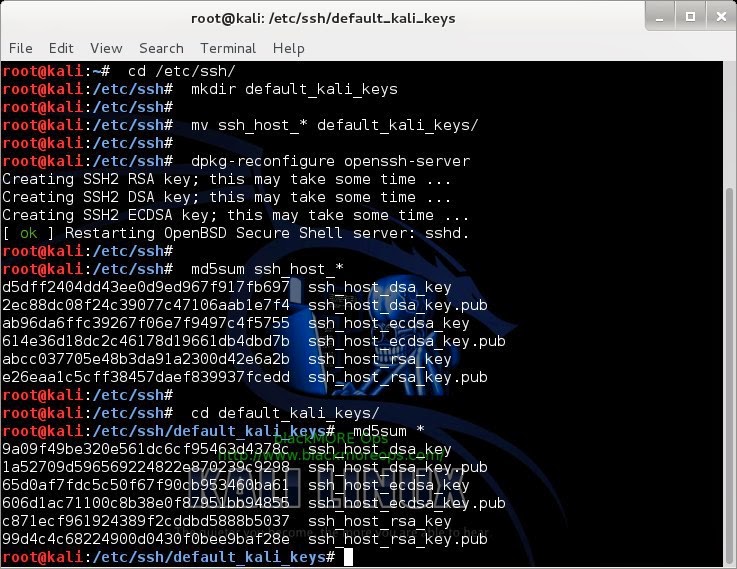

- Linux ssh keygen root upgrade#
- Linux ssh keygen root password#
- Linux ssh keygen root windows#
You can set up two-factor authentication (2FA) for Configure two-factor authentication (2FA) On the files make them readable to you but not accessible to others. Private and public keys contain sensitive data. Open a terminal and run this command, replacing with your Replace this example hostname with your GitLab instance’s hostname, for example, For, to ensure you’re connecting to the correct server, confirm the The following commands use the example hostname. Verify that your SSH key was added correctly. It emails an expiration notice for all SSH keys that are scheduled to expire seven days from now. GitLab checks all SSH keys at 01:00 AM UTC every day.

It emails an expiration notice for all SSH keys that expire on the current date.
GitLab checks all SSH keys at 02:00 AM UTC every day. Administrators can view expiration dates and use them for GitLab 13.12 and earlier, the expiration date is informational only. In the Expires at box, select an expiration date. In the Title box, type a description, like Work Laptop or. Ssh-ed25519, or and may end with a comment. Which starts with ssh-rsa, ssh-dss, ecdsa-sha2-nistp256, ecdsa-sha2-nistp384, ecdsa-sha2-nistp521, If you manually copied the key, make sure you copy the entire key, In the Key box, paste the contents of your public key. On the top bar, in the top right corner, select your avatar. Replace id_ed25519.pub with your filename. You may want to use an email address for the comment. Run ssh-keygen -t followed by the key type and an optional comment. If you do not have an existing SSH key pair, generate a new one: Id_ecdsa.pub id_ecdsa Generate an SSH key pair Id_ecdsa_sk.pub id_ecdsa_sk RSA (at least 2048-bit key size) See if a file with one of the following formats exists: In the latter case, you need to generate an SSH key pair. You are either not in the home directory, or you haven’t used ssh before. Review the man page for your installed ssh-keygen command for details.īefore you create a key pair, see if a key pair already exists. The default key size depends on your version of ssh-keygen. Recommends a key size of at least 2048 bits. If you use an RSA key, the US National Institute of Science and Technology in Must have OpenSSH 8.2 or later installed.Īvailable documentation suggests ED25519 is more secure than RSA. To use ECDSA_SK SSH keys on GitLab, your local client and GitLab server OpenSSH 6.5 introduced ED25519 SSH keys in 2014, and they should be available on most Suggests that ED25519 keys are more secure and performant than RSA keys. ECDSA (As noted in Practical Cryptography With Go, the security issues related to DSA also apply to ECDSA.)Īdministrators can restrict which keys are permitted and their minimum lengths. ECDSA_SK (Available in GitLab 14.8 and later.). ED25519_SK (Available in GitLab 14.8 and later.). To communicate with GitLab, you can use the following SSH key types: To view the version of SSH installed on your system, run ssh -V. Earlier versions used an MD5 signature, which is not secure. Linux ssh keygen root windows#
The OpenSSH client, which comes pre-installed on GNU/Linux, macOS, and Windows 10. To use SSH to communicate with GitLab, you need: Linux ssh keygen root password#
You don’t need to supply your username and password each time. When you use SSH keys to authenticate to the GitLab remote server, GitLab uses the SSH protocol to securely communicate with Git. In this case, the server you push to is GitLab. Then share or push your changes to a server. Git is a distributed version control system, which means you can work locally,
Key enrollment failed: invalid format error Use SSH keys to communicate with GitLab. Overriding SSH settings on the GitLab server. Configure two-factor authentication (2FA). Use different accounts on a single GitLab instance. Use different keys for different repositories. Generate an SSH key pair for a FIDO/U2F hardware security key. Linux ssh keygen root upgrade#
Upgrade your RSA key pair to a more secure format. Configure SSH to point to a different directory. See if you have an existing SSH key pair.






 0 kommentar(er)
0 kommentar(er)
